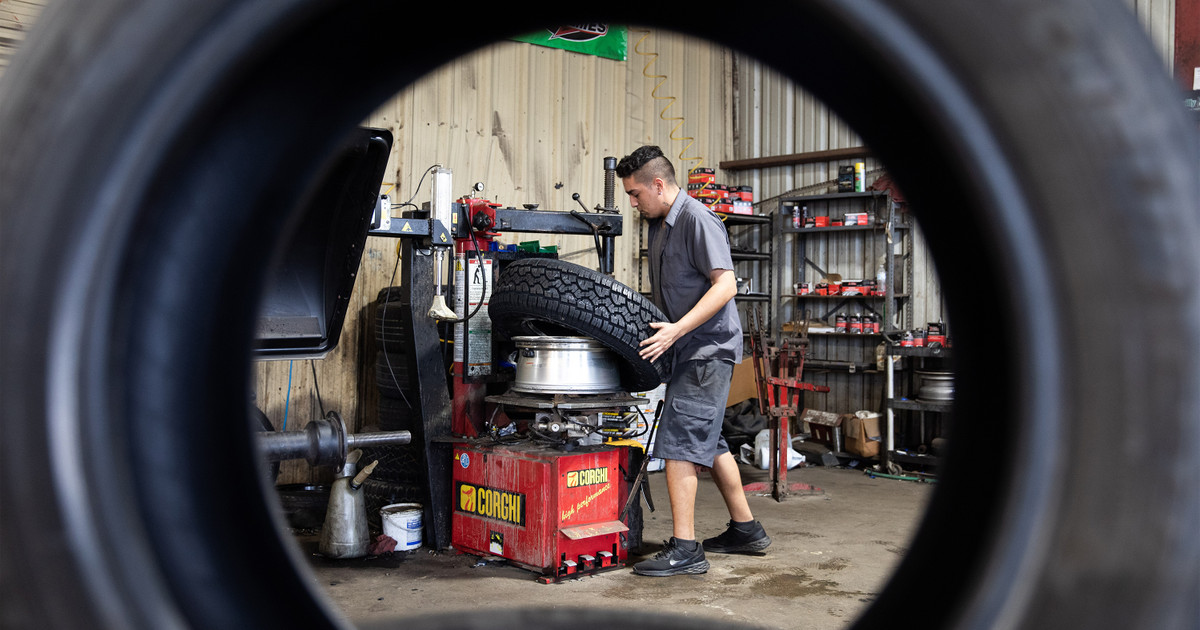Discover Tire Excellence at Morris Tire: Your Trick to Optimal Performance
Discover Tire Excellence at Morris Tire: Your Trick to Optimal Performance
Blog Article
The Ecological Advantages of Correct Tire Upkeep
Maintaining correct tire care is typically ignored, yet its influence on the setting is profound. Appropriate tire maintenance not only prolongs the lifespan of tires yet also reduces landfill waste and adds to boosted air top quality.
Decreased Fuel Consumption
Improving tire upkeep practices can lead to a considerable decrease in gas intake for cars. According to the U.S. Department of Power, underinflated tires can lower gas mileage by 0.2% for every 1 psi decrease in pressure in all 4 tires.
In addition to tire pressure, regular tire rotations and placements also play a vital function in gas efficiency. Erratically worn tires can boost gas consumption as the engine functions harder to preserve speed and grip. By preserving proper positioning and rotating tires at advised periods, vehicle drivers can guarantee also use and lengthen the life of their tires, ultimately saving gas and lowering their carbon impact.
Extended Tire Life-span
Prolonging the lifespan of tires is a key aspect of effective lorry maintenance practices that can generate price financial savings and ecological benefits in the long run. By correctly preserving tires, drivers can significantly prolong their use, lowering the regularity at which brand-new tires require to be manufactured and old ones taken care of. This not only conserves important sources however likewise minimizes the energy and emissions connected with tire manufacturing and disposal processes.
Consistently examining tire stress, revolving tires, and ensuring proper placement are crucial actions in extending tire life-span. Sufficient walk deepness is important for optimum traction and safety and security, but it additionally plays a duty in how much time tires can be utilized prior to requiring substitute. In addition, staying clear of aggressive driving actions that accelerate tire wear, such as harsh stopping and doglegs, can further enhance tire longevity.
Inevitably, boosting the longevity of tires with proactive upkeep not only benefits the setting by minimizing waste and preserving sources yet additionally causes cost financial savings for automobile owners by delaying the demand for new tire acquisitions.
Lower Exhausts Outcome
Effective tire upkeep practices contribute to a decrease in discharges result, aligning with ecological sustainability goals in the automotive industry. By maintaining optimal tire stress levels, chauffeurs can assist reduce these negative environmental influences.
In addition, well-maintained tires likewise boost traction and lower rolling resistance, better improving fuel effectiveness. This, consequently, minimizes the amount of exhaust gases released right into the atmosphere. In addition, making certain tires are appropriately blown up and straightened can extend the life-span of the tires, lowering the frequency of tire replacements and the linked environmental costs of tire manufacturing and disposal.

Decreased Land Fill Waste
Offered the favorable impact of correct tire upkeep on lowering exhausts output, one more my response substantial environmental benefit is the possibility for lowered landfill waste. When tires are not kept appropriately, they wear faster and require to be changed a lot more often. This brings about a greater volume of used tires being thrown away in garbage dumps. However, by ensuring that tires are effectively inflated, aligned, well balanced, and rotated consistently, their lifespan can be dramatically extended. This suggests that fewer tires wind up in landfills, lowering the quantity of non-biodegradable waste in these already overruning sites.

Improved Air Quality
Enhancing air quality through appropriate tire maintenance techniques is an essential element of lasting environmental stewardship. When tires are underinflated, they develop a hop over to these guys lot more moving resistance, causing raised gas intake and higher emissions of damaging toxins such as carbon monoxide and nitrogen oxides. Appropriately filled with air tires not only enhance gas effectiveness yet likewise reduce the amount of toxins released into the air.
Additionally, properly maintained tires with proper step depth and alignment add to safer motoring conditions, minimizing the chance of accidents that can cause the release of additional toxins right into the ambience. By extending the life-span of tires via routine upkeep and rotation, fewer tires are thrown out too soon, lowering the environmental impact of tire disposal and production procedures.
Verdict
In final thought, correct tire maintenance uses countless environmental advantages. It is necessary for people to focus on tire maintenance as a straightforward yet efficient means to safeguard the setting for future generations.
Appropriate tire maintenance not only prolongs the lifespan of tires however likewise lowers landfill waste and adds to improved air high quality - tire tracks morris il. By maintaining appropriate positioning and rotating tires at advised periods, chauffeurs can make certain also use and prolong the life of their tires, ultimately conserving fuel and reducing their carbon footprint
By properly maintaining tires, drivers can significantly prolong their use, minimizing the regularity at which new tires require to be made and old ones disposed of.Frequently examining tire pressure, revolving tires, and ensuring correct positioning pop over to this site are necessary actions in expanding tire lifespan. Furthermore, guaranteeing tires are effectively inflated and lined up can extend the lifespan of the tires, minimizing the frequency of tire replacements and the connected environmental prices of tire production and disposal.
Report this page